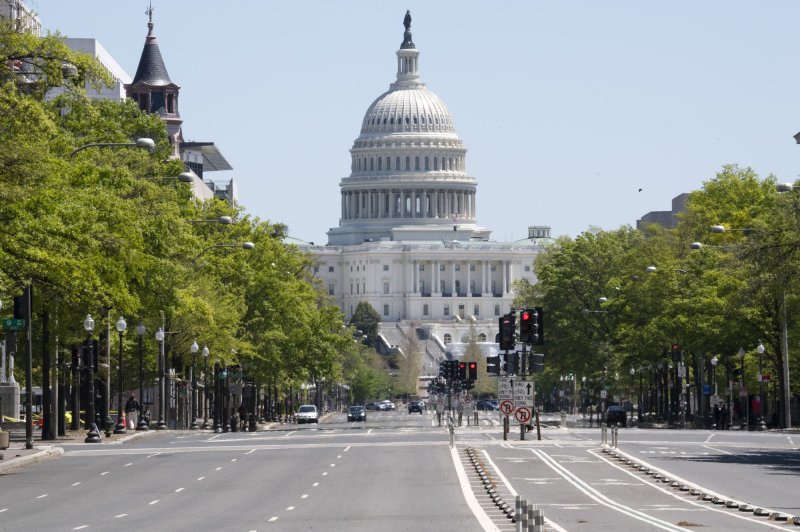Standing Up to the Armed and Inarticulate
American fascism is always a force waiting to be born.
by

Guns are the speech of the inarticulate. (Photo: Apu GOMES / AFP via Getty Images)
Here’s a quietly unsettling moment from the current cries for change churning across the nation:
A teenage girl is at a grocery store in the small town of Marion, Virginia. Her brother, Travon Brown, age 17, had recently become both beloved and hated — the center of controversy — in the town, because he had organized a protest against racism in the wake of the police killing of George Floyd in Minneapolis. This was one of thousands of such protests across the country, but the majority-white town was nonetheless riled up over this affront, according to the Washington Post, which took a long, deep look at events there.
Indeed, a neighbor had burned a cross on the family’s lawn after the protest and wound up getting arrested. That was by no means the end of the unrest. At the store, the Post informed us, Ray’Kia “was confronted by a stranger . . . who asked the 16-year-old if she was Travon’s sister and then pulled up his shirt to reveal a handgun.”
Get it?
This is the USA, land of the Second Amendment. The stranger wasn’t threatening to murder a young, African-American woman (I don’t think), just tossing a warning into her awareness that armed, white America will never change. Guns are the speech of the inarticulate.
I begin with this fleeting moment — nothing further came of it — simply because it captures both the worst and best of who we are. This was not the end of the protest movement in Marion, nor has Donald Trump’s infusion of secret, federal “police” into Portland, Oregon — with more of the same coming to other cities, including Chicago, where I live — put an end to the nation’s protest movements: the demands for change and consciousness shift. But I see a surreal symmetry here. The inarticulate but oh-so-powerful President Trump is sending the same sort of message . . . to a city, to a country.
The message can probably be summed up thus: This is a divided nation. Always has been, always will be. White people run things here and that isn’t going to change. We live in an us-vs.-them world. Get used to it. Stay in your place, whoever you are.
Trump is tapping into the same consciousness as the guy in the grocery store. American fascism is always a force waiting to be born.
As Juan Cole writes: “It now appears clear that part of that strategy is to send Federal agents dressed like Iraq War troops to Democratic-run cities, on the pretext of protecting Federal property, and then for them to attack and provoke Black Lives Matter and Defund the Police protesters, causing violence to escalate and using it . . . to scare the suburbs. The exercise also has the advantage for Trump of entrenching a new form of secret police and of turning Federal agents into instruments of his authoritarianism.”
As some writers have pointed out, it could also be Trump’s re-election strategy: “In this regard, Trump appears to be following Richard Nixon’s 1968 ‘Southern Strategy,’ perhaps even on the advice of former Nixon advisor Roger Stone,” Thom Hartmann writes. “Provoke violence, make cities burn, and then promise to keep white people safe with ‘law and order.’”
What’s crucial here is not to give them what they want, i.e., a pseudo-civil war, which will be crushed by the heavily armed “good guys” — the ones firing teargas and rubber bullets, arresting protesters for no apparent reason and throwing them into unmarked cars.
In this context, meet “Naked Athena.” Actually, she is an unidentified woman, but she was thus dubbed when photos of her appearance — wearing nothing but a face mask and a stocking cap — at a Portland protest rally last week, taken by a photographer for the Portland Oregonian, went public.
The photographer had been covering a protest into the wee hours last weekend when, according to the Oregonian, at nearly 2 a.m., as police officers stood in a confrontational faceoff with a crowd of protesters, suddenly “a naked woman appeared. She walked out to the intersection in front of where police were standing. . . . She paced the area near the crosswalk. She laid down, kicking up her feet. She did ballet poses.” At one point, police officers shot pepper balls at her feet. She stayed put.
Basically, everyone was stunned. After about ten minutes, the police simply walked away.
The photographer, Dave Killen, said: “She was incredibly vulnerable. It would have been incredibly painful to be shot with any of those munitions with no clothes on.”
Perhaps what’s most stunning here is the power of vulnerability. And so I return to Travon Brown, and the second protest he organized in Marion. Yes, the protesters were met by a crowd of counter-protesters, who, as the Post reports, started shouting things at them like “Antifa sucks” and “Go home!” Anger bubbled.
“When protesters began to talk back, Travon turned and shushed them,” according to the Post. “He knelt near the front, his right fist raised to the air.” As he did so, the caustic sarcasm from the counter-protesters continued. But then . . .
“Travon began shouting ‘I love you’ across the divide, and soon all the protesters were shouting it and the faces opposite them were momentarily quiet and confused.”
And later the chief of the county sheriff’s department shook his hand, happily reporting that not a single person had been arrested.
As Jeffrey Isaac wrote, when Brown cried out “love!” . . . “he seems to have meant it in the way that Martin Luther King, Jr. meant it — not as mere sentiment of affection, but as ‘agape,’ an active performance of human solidarity, a way of engaging with one’s oppressors, and communicating with bystanders . . .”
Love — so much deeper, so much more vulnerable, so much more powerful than hate. In the long run, this is the force that will create the change so many of us are calling for.
















